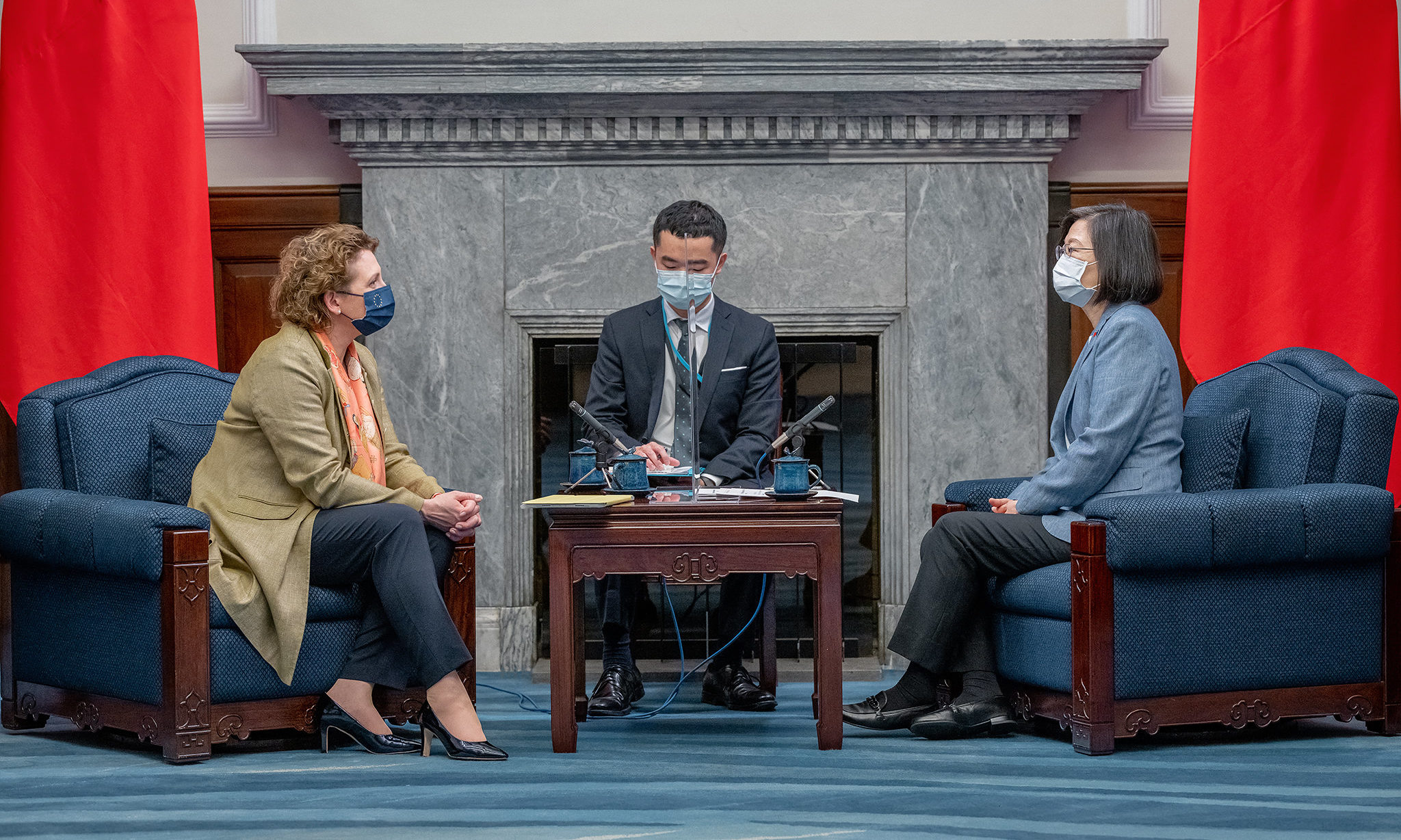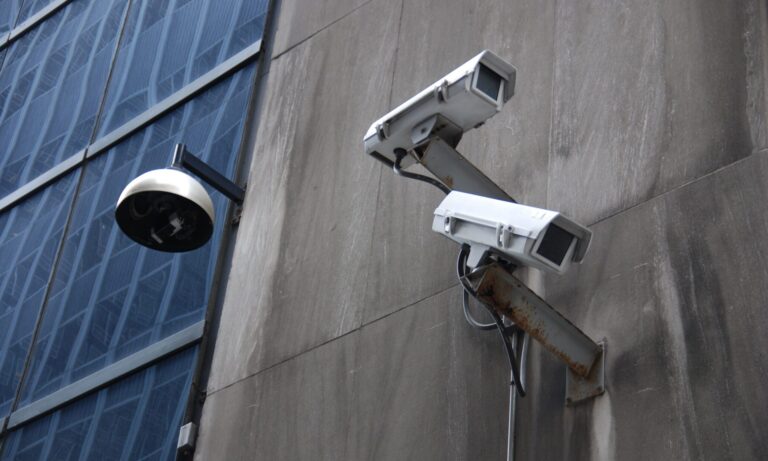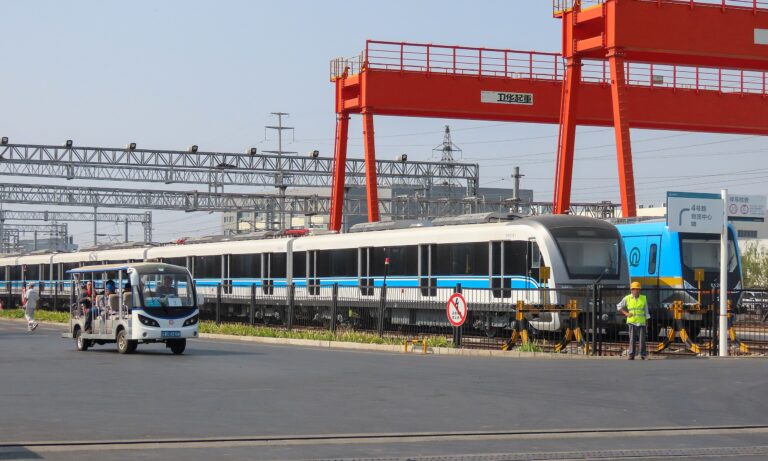
Parliamentary diplomacy has brought Taiwan closer to Europe and encouraged learning from its expertise in combatting disinformation. By exploiting the lack of Taiwan and China competence across the EU, Beijing continues to blur the line between its so-called One-China Principle and the EU’s own One-China Policy. A communication offensive on Taiwan’s relevance to the EU reinforced by parliamentary diplomacy would empower Europeans in the face of Beijing’s disinformation efforts and help keep Taiwan close.
As a tool to help circumvent Taiwan’s diplomatic isolation, parliamentary visits are common in relations between the European Union (EU) and Taiwan. Throughout the global health crisis, albeit within the boundaries of pandemic-related restrictions, Taiwan has received parliamentary delegations from EU member states and from the European Parliament (EP), which it has sought to reciprocate. This has enabled an unprecedented level of development in bilateral ties.
Every European visit has helped to amplify an emerging trend, namely that a growing number of EU member states is ready to expand cooperation with Taiwan. At the same time, by exploiting the lack of Taiwan and China competence across the EU, Beijing has increasingly sought to deepen confusion across the bloc, blurring the line between its so-called One-China Principle and the EU’s own One-China Policy.
To keep the momentum in EU-Taiwan ties, both sides must be more strategic about the relevance they mutually entail to each other’s prosperity and security and engage in better communication. Going forward, parliamentary diplomacy will be key to help better ground bilateral cooperation and shield it from Beijing’s disinformation.
“Here to Learn”
In a visibly more anxious relationship with China, EU member states are in a learning process in their cooperation with Taiwan. They have started to assert their right to cooperate with Taiwan, indicative of a significant shift in the way they perceive and relate to the Asian democratic nation. As common practice between democracies, parliamentary diplomacy has contributed to seeing Taiwan as a like-minded partner.
With several visits from different EU member states in 2022, namely Slovakia, the Czech Republic, Lithuania, Latvia, Estonia, France, Germany, it appears that the frequency of delegations to Taiwan is returning to its pre-pandemic level. Research shows that prior to the pandemic, visits from EU countries were even more frequent than those realized in 2022.
However, it was the November 2021 visit of the EP’s Special Committee on Foreign Interference and Disinformation (INGE) that brought a breakthrough concerning the place EU institutions reserve for Taiwan on their political agenda. It was the first-ever official visit from an EU institution, although not the first time the EP spoke out in support of Taiwan in the face of pressure from China. The second official EP delegation visit in July 2022 led by one of its vice-presidents, Nicola Beer, has helped maintain the momentum.
The message the EU legislators carried was revealing, and unequivocally clear. In their meeting with Taiwan’s President Tsai Ing-wen, French legislator Raphaël Glucksmann leading the INGE delegation said “we came here to learn from you,” referring to Taiwan’s expertise in combatting disinformation. The wording was meant to reinforce the message that there was nothing unusual – or concealed – in Europeans’ interest in learning from others’ best practices in fighting one of the most important global challenges, namely the weaponization of information.
Seeking to learn in an open and transparent way should have reassured, rather than disconcerted China. Yet, it came as no surprise that, as a government that has a history of withholding, manipulating and falsifying data and information at the expense of transparency, Beijing has instead doubled down on its narrative already well underway, aimed at promoting a positive image of China while continuing to rewrite narratives around sensitive issues.
Beijing’s intention has been to deepen confusion by exploiting the lack of understanding across the European public of the EU’s relationship with Taiwan, to refute the fact that Taiwan is relevant for the EU’s security and prosperity, and that, as the largest investor in Taiwan, the EU has its own interests to protect in the region.
Combatting Beijing’s Disinformation
Beijing has used a well-tried tactic, namely to blur the line between its so-called One-China Principle and the EU’s own One-China Policy. As such, concerning the INGE visit, the official Chinese discourse falsely claimed that the principle is “a universally recognized norm in international relations and an international consensus.”
The Chinese mission to the EU argued that the same principle is the political foundation for the establishment of diplomatic relations between China and the EU and the visit would therefore “seriously violate the EU’s commitment to the One-China Policy” (highlight added).
Just like that, in one breath, the principle and policy became one, as if they meant the same thing. For anyone ill-equipped or not careful about where to draw the line, the trick would go unnoticed.
In reality, the EU’s One-China Policy means that while the EU recognizes the government of the People’s Republic of China as the sole legal government of China, the EU and Taiwan have developed solid relations and close cooperation. In contrast, Beijing’s One-China Principle claims that “there is but one China in the world, Taiwan is an inalienable part of China’s territory, and the People’s Republic of China is the sole legal government representing the whole of China.”
Most recently, in September the EU’s High Representative Josep Borrell said that the EU seeks to broaden cooperation with Taiwan in the framework of the bloc’s One-China Policy. He also stressed: “Let me be clear on this: the One-China Policy does not prevent us – the European Union – from persisting and intensifying our cooperation with Taiwan, not from expressing our concerns at the recent rising tensions.”
Brussels and EU member states have repeatedly sought to make it clear that the boundaries of its policy have not changed. They have kept to this policy even as relations with Beijing deteriorated with Beijing’s sanctions against EP legislators or its economic coercion against Lithuania (also impacting intra-European trade), both unprecedented challenges backed by Beijing’s aggressive narrative. As such, Foreign Minister Wang Yi said the EU should urge Lithuania “to return to the right track of the One-China Principle as soon as possible” (highlight added).
Effective Communication and Social Resilience
In reality, the weaker the democratic defence, the easier to cut through it and destabilize the social fabric of European democracies from within. The European response must therefore be proactive, rather than reactive, through communication that empowers Europeans with information that helps detect and debunk disinformation. In raising Taiwan’s profile across the bloc, parliamentary diplomacy has already been of particular value.
The INGE visit has contributed to setting the agenda on Taiwan inside the EP by keeping it among its top priorities. In full transparency, INGE shared substantial information on their findings in a follow-up report and organized an exchange of views on Taiwan with its Minister of Digital Affairs, Audrey Tang, with open online access. Such activities available to a broad audience all contribute to increasing understanding of Taiwan.
Taiwan’s strong record in the fight against disinformation is what attracted INGE in the first place. Having been the victim of state-led and state-sponsored disinformation from China for years, Taiwan has fought back with transparency, media-literacy education, stricter new legislation and tools to fact-check and protect the public space vulnerable to such attempts. This is where and how Taiwan consolidated its social resilience, contributing to its strength domestically and appeal internationally. This is where the EU should continue to look for inspiration.
Going Forward
Parliamentary diplomacy has helped bring Taiwan closer to Europe. It has opened up channels to better understand Taiwan, and encouraged the EU to learn from its expertise in combatting disinformation. It has also demonstrated that the EU’s One-China Policy does not hinder the expansion of cooperation with Taiwan, it is instead Beijing’s false accusations left unaddressed that create confusion at both Europe’s and Taiwan’s expense. For the first time, we are seeing a more aware and alert geopolitical discussion on Taiwan and China in Brussels. It is now time to advance toward a credible strategy rooted in resilience.
A communication offensive on Taiwan’s relevance to the EU projected across the bloc and reinforced by parliamentary diplomacy, including with the support of international platforms such as the Formosa Club or the Inter-Parliamentary Alliance on China (IPAC), would help strengthen media literacy and address the lack of China and Taiwan competence in member states. This would empower Europeans in the face of Beijing’s disinformation. At the same time, the EU should join the Global Cooperation Training Framework (GCTF) along Taiwan, the United States, Japan and Australia, and set up a permanent working group on disinformation. This would strengthen connections among all participating countries and be an important investment in their social resilience. It would also help the EU keep Taiwan close by expanding cooperation on a practical agenda.
Written by
Zsuzsa Anna Ferenczy
zsuzsettteZsuzsa Anna Ferenczy is a Ph.D. Assistant Professor, National Dong Hwa University, Hualien, Taiwan, Head of Associates Network at 9DASHLINE, former political advisor at the European Parliament.


